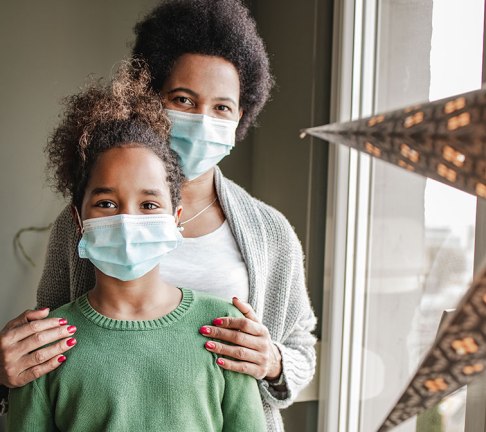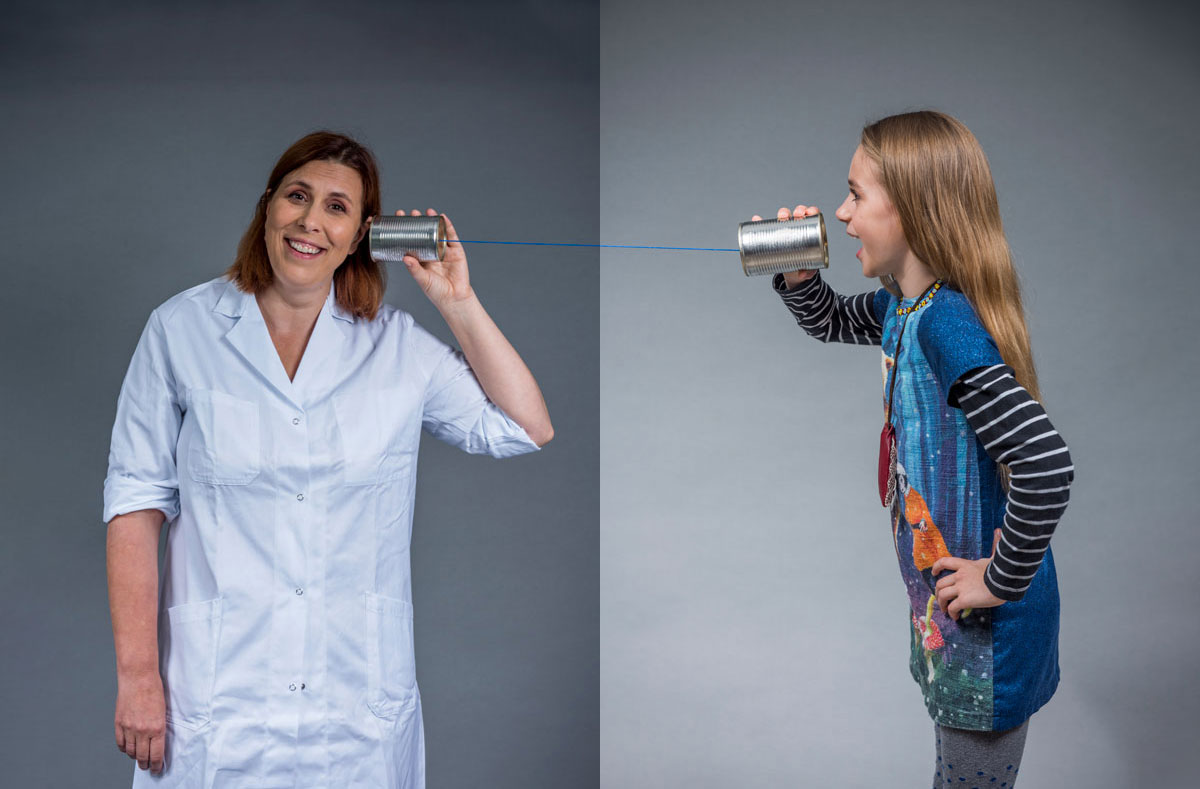
MSD supports the non-profit organization “Patient Empowerment”, led by Prof. Eeckman
A person who falls ill loses their autonomy and independence. This can give rise to anger and frustration and even make the patient sicker. So, it is important not only to give the care recipient the best care but also to maintain, restore or even reinforce their sense of autonomy.
This is done through the way in which everyone involved in care communicates and interacts with the patient. In doing so, this also transcends the interpersonal relationship between the care recipient and care provider.
For example, at the reception desk in a hospital the patient may feel they are the passive recipient of treatment they must undergo. The complex bureaucracy of the healthcare system can also evoke this feeling. Respecting a sick person’s sense of autonomy therefore takes place on several levels and can only be successful if we all strive for and contribute to it together. ‘Together’ is therefore also a keyword within the daily functioning of the non-profit organization Patient Empowerment, of which Prof. Eeckman is the co-founder and current chairman.
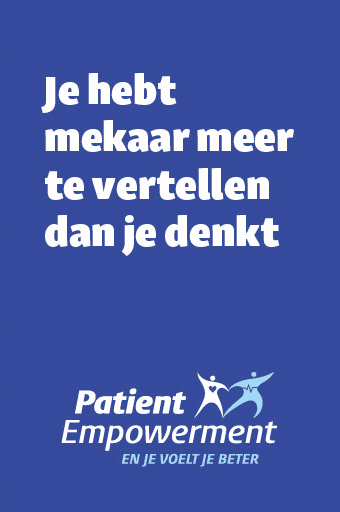
Sustainability of the Patient Empowerment organization
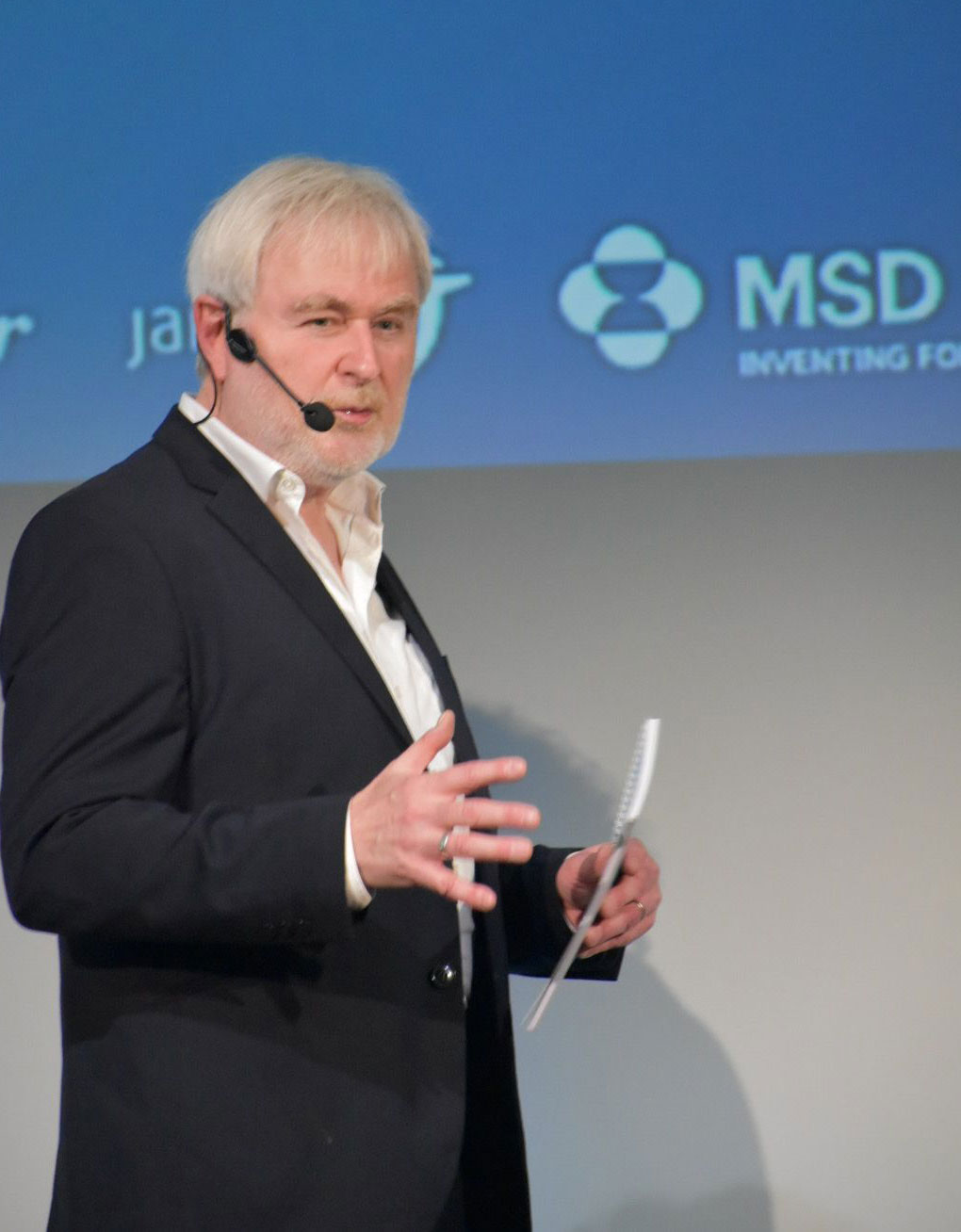
“Without grant funding, Patient Empowerment cannot implement projects. The non-profit organization is looking for sustainable funding to help it run as efficiently as possible.
The partnership with MSD is essential. Moreover, MSD is a highly committed partner, which we greatly appreciate. Both organizations are working towards the same goal. After all, this is about a person’s well-being at perhaps the most vulnerable time in their life, namely when their health and sometimes their entire existence is threatened.”
Edgard Eeckman (Chairman)
Patient Empowerment is a high priority for MSD and PE. What does Patient Empowerment mean exactly?
Patient Empowerment is the process through which people gain greater control over decisions and actions affecting their health. The patient should be given the possibility of being in control of their own care process. The ultimate goal is for a patient to be well informed about what is happening to them, what can be done about their disease, the potential advantages and disadvantages of each treatment and as such, to be in a position to make a conscious decision in favor of a specific treatment and to consider this feasible. This results in a person who is sick being closely involved in what is happening to them during their personal treatment. They are as convinced of the importance of the treatment as the doctor. After all, they must both make decisions together. Once again, the word “together” pops up.
“Together we know so much more!” – MSD participated
in the Patient Empowerment Symposium & campaign
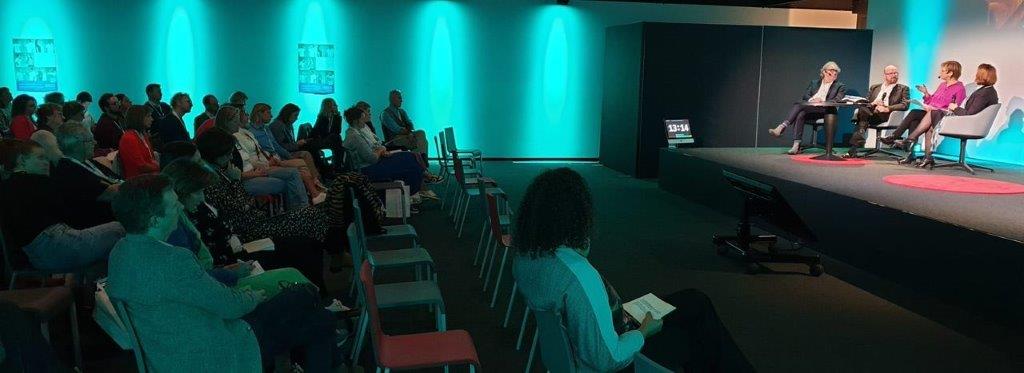
This symposium kicked off the patient empowerment campaign: “You have more to tell to each other than you think.” How easy or difficult is it to bring these different parties (doctor, patient, hospital, company) together and get them to listen to each other?
Care recipients need caregivers, so dependence is inherent in this relationship. However, through communication, we can try to reduce the uncomfortable and unwanted feeling of dependency to the bare minimum. For this to succeed, it is important that they understand each other, and understanding begins with listening.
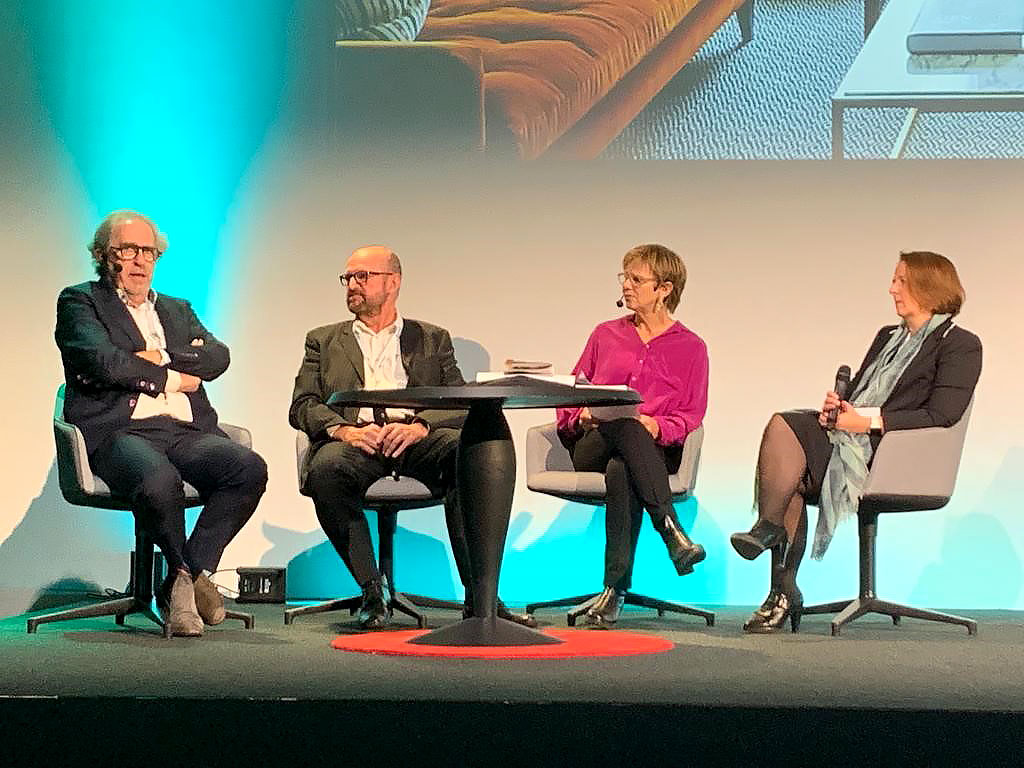
A caregiver such as a doctor must obviously listen to a care recipient because doctors are experts with valuable knowledge and experience. But healthcare providers must also listen to the patient. After all, it is not because something is possible from a medical perspective that a patient is also in favor of it. Patients may feel that the side effects are too great, that they must compromise too much on their values.
In the end stage of life this is obvious: if your life is about to end, does it still make sense to undergo a further surgical procedure? The surgeon may be able to justify this on medical grounds, but ultimately it is up to the patient to decide whether they still consider it worthwhile. That principle should apply throughout the entire healthcare system.
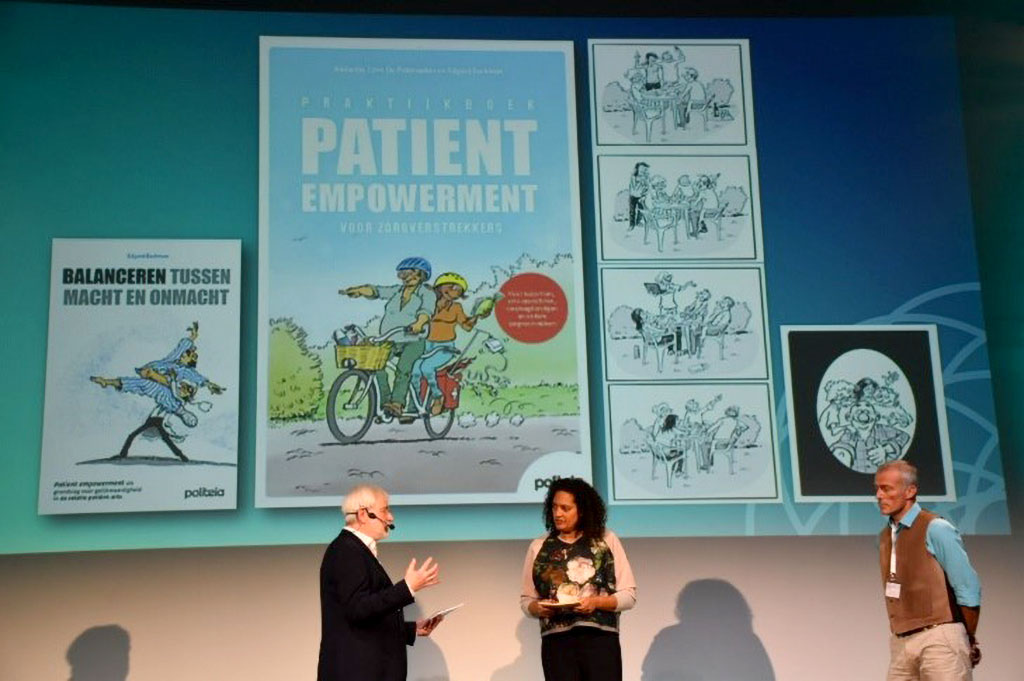
“By the way, I believe that the patient should not be a partner in their care process, but the owner of it. My view is that the user should be the co-owner of the care system and should also have a say. The care recipient, care provider, and care organization share control and responsibility, and this should always involve mutual respect. To me, the care recipient is not just a “client” who can place an order, they also have a shared responsibility and duties.“
Edgard Eeckman (Chairman – Patient Empowerment VZW)
All these aspects are covered in the associated campaign which started on October 26 with posters, social media posts, and videos with tips.
“Patient Empowerment for Healthcare Providers”1 Practice Book, Prof. E. Eeckman
The concept of Patient Empowerment entails communication as a means, not an end, that puts the care recipient in the driver’s seat. Some patients will naturally be empowered, some do not wish to be (and are free to choose), and others wish to be, but cannot. After all, a third of the Belgian population (aged 15 and over) has a low level of health literacy and this is why we need to support these people. How healthcare providers can empower patients is the topic of a new publication, the “Patient Empowerment for Healthcare Providers Practice Book,” published by Politeia. This book is packed with concrete tips. Ultimately, empowering the care recipient involves 1001 minor behavioral elements.
The book puts into practice the insights from Eeckman’s first book, ‘Balancing between power and powerlessness, Patient Empowerment as a basis for equivalence in the patient-doctor relationship’ (Politeia). It is based on his doctoral research (Communication Sciences VUB [University of Brussels]) and explains the concept of Patient Empowerment in an accessible way.
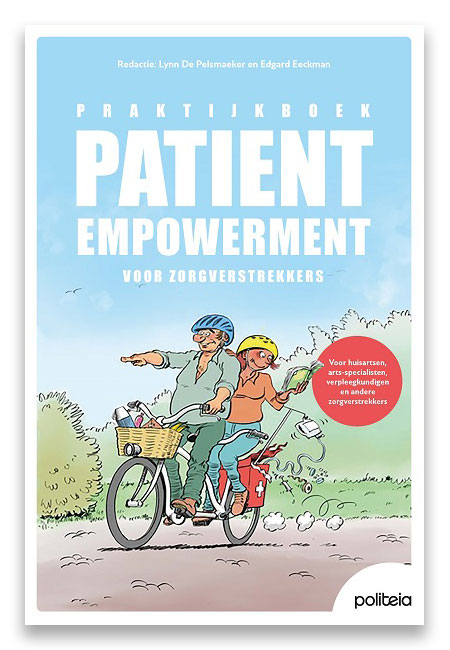
More information and details for how to order can be found here (Publicaties – Patient Empowerment)
[1] Dutch version only

